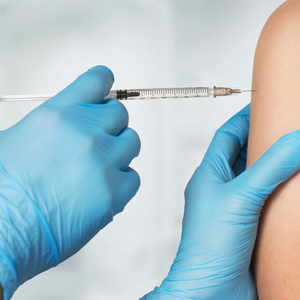
Over the past few months reports have emerged from the US and UK, detailing the horrible flu epidemic they have just emerged from.
As South Africa faces the annual flu season, should we be on high alert, following the high number of deaths in these countries?
This particular strain of flu is called H3N2, and is a subtype of influenza A. It has been nicknamed the "Aussie flu", even though it did not originate in Australia. The virus has in fact been around for a while, and continues to mutate.
Get vaccinated
Because of influenza A, healthcare professionals and authorities, like the National Institute for Communicable Diseases (NICD), are urging South Africans to get vaccinated against the flu.
Professor Cheryl Cohen, co-head of the Centre for Respiratory Diseases and Meningitis, told Health24 that flu strains are constantly updating themselves in order to avoid people's immune response. She added that this year’s vaccine has been updated and is different to that of the US and the rest of the northern hemisphere, and they hope it will work well against the strains in South Africa.
“There are many factors which would determine if a flu season is severe or not. We need to look at the possible strains we might see in the season ahead along with strains we’ve seen in the past.
“We also need to look at the immunity in the population when looking at different strains. Many people might be immune to a certain strain or not; this can differ from place to place. Another factor is also any underlying conditions in the population – elderly people have a particularly high risk of contracting flu, along with those who have underlying illnesses such as heart diseases, lung diseases and HIV.
“All of these factors together determine whether the season is severe or not, but the message we’re giving to nurses and doctors is that they should be aware that there was a severe strain overseas last year and they should be looking out for flu in their patients.
“People who are at higher risk must go and get the vaccine, because there is still a possibility that it might be a severe season, but on the other hand, there’s no guarantee. It might just be a normal season, or even a mild season.
“Basically, the message is that we need to be aware; we need to monitor the situation, but there is no cause for panic. If the season is more severe, systems will kick in to deal with that.”
Travelling flu virus
Last month, the Stormers Super 15 rugby team struggled with planning because several players were down with the flu.
Coach Robbie Fleck mentioned that a few players had already been hit when they were away in New Zealand.
Prof Cohen added that flu is a highly seasonal disease. “It’s actually the most seasonal disease we know. In temperate countries like South Africa it really only circulates for a few months during the winter season. Outside of that time, we basically don’t see any flu at all, unless it’s in travellers who come from overseas.
“Because of this, there is a discontinuity in timing between the northern hemisphere flu season and the southern hemisphere flu season. Their winter is different to ours – they have their season during December to February and we have ours from April.”
Should you get the pneumonia vaccine too?
Pete Vincent, a doctor at Netcare Travel Clinics and Medicross Tokai, said that the vaccine is still the best protection against the flu, but some individuals should consider having a pneumonia vaccine as well.
Dr Vincent said that bacterial pneumonia can be very dangerous for anyone, but particularly in the case of high-risk individuals, such as the elderly, babies, small children, pregnant women and anyone else with a compromised immune system.
“Pneumonia is one of the most dangerous secondary infections and complications of an influenza infection, and is responsible for many deaths locally and around the world every year.
“While the decision to vaccinate against either flu, pneumonia or both, is a personal one, we recommend that people who are at higher risk consider both the influenza and the streptococcus bacteria vaccinations.
“Travellers to the northern hemisphere should also consider both vaccines, as there are many regions where flu is still prevalent,” Dr Vincent told Health24.
Why do you or do you not get vaccinated for flu? Will you consider getting vaccinated for pneumonia as well? Why or why not? Share your thoughts by emailing healthnews@health24.com and we may publish your story. Should you wish to remain anonymous, please let us know.
Image credit: iStock




 Publications
Publications
 Partners
Partners











